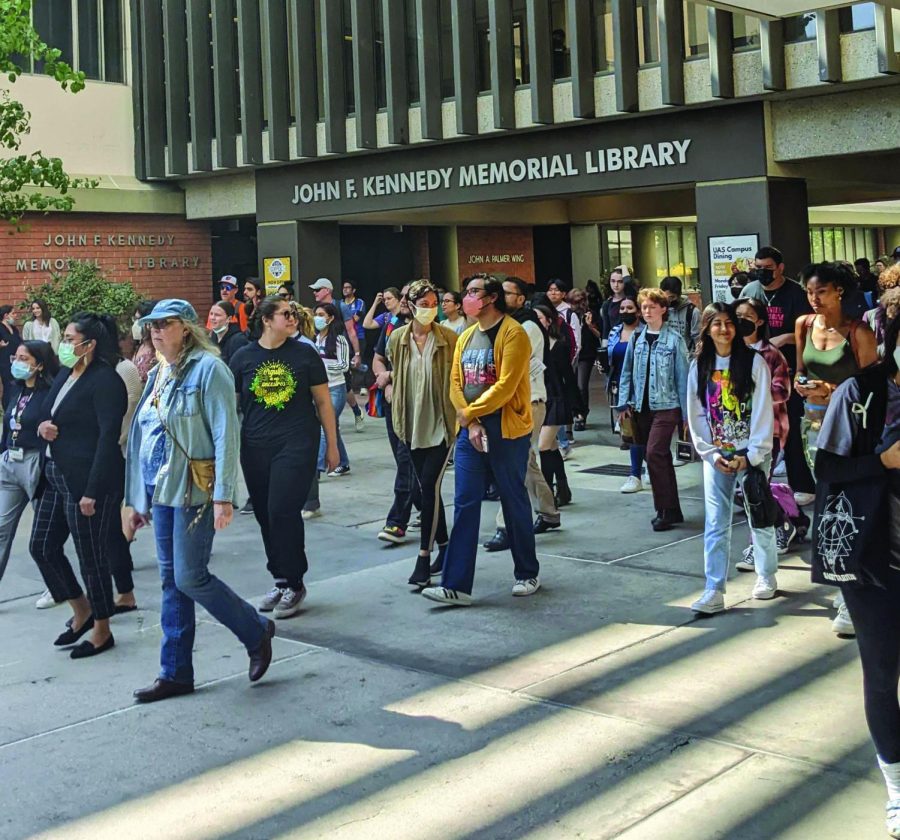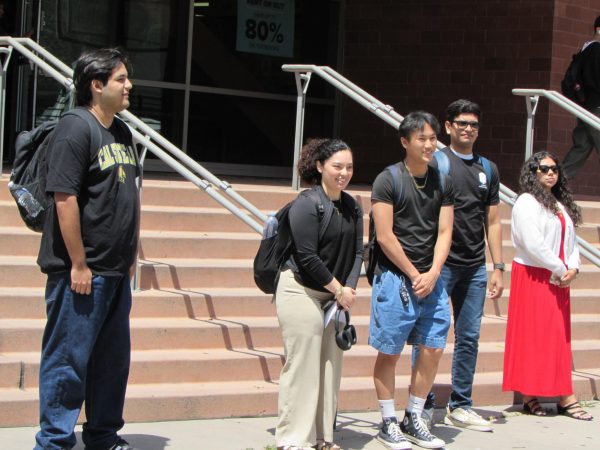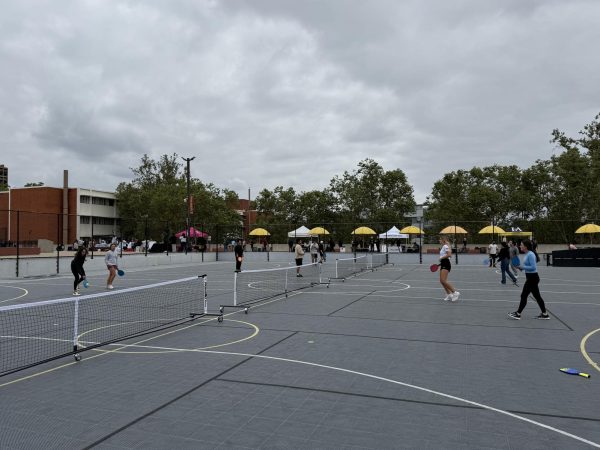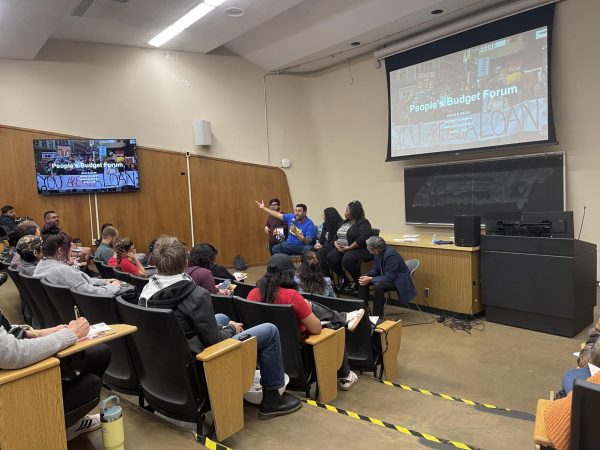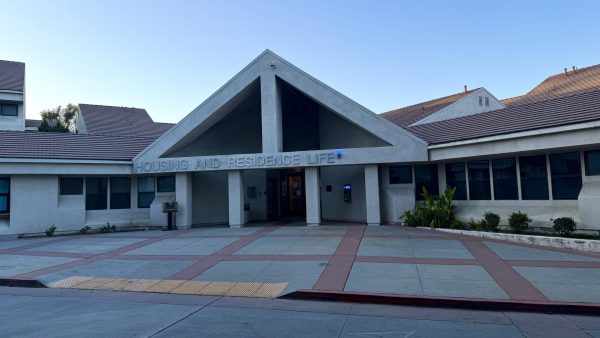Students weigh in on this semester’s COVID safety protocols
Cal State LA students walking in front of the John F. Kennedy Memorial Library. Photo by Anne To.
As Cal State LA heads into the Spring 2023 semester, data from the CDC suggests that rates of new COVID-19 cases in California have slowed down significantly since January 2022.
However, the university’s Health Watch webpage says face masks will continue to be required in classrooms and labs, while areas like hallways, libraries and offices do not require visitors to wear one.
Some students, like Salvador Gutierrez, a graphic design major, believe that students should have the choice of whether or not they mask up in classrooms and labs.
“Say you’re at the cafe and you don’t have the mask. You’re sitting in close proximity with others, versus when you’re in a classroom where you’re kind of spaced out,” Gutierrez said. “It’s kind of backwards a little bit.”
Others like Veronica Driscoll, a theater major, said that despite low case rates, masks are still necessary.
“It’s no longer about stopping the spread of just COVID,” Driscoll said in an email. “Now we can use this newly added tool, the mask, to further prevent multiple diseases from spreading. I hope masks continue to be normalized when we feel sick.”
Driscoll said that Cal State LA’s current mask regulations likely won’t do much to help slow cases.
“I find it hard to believe having select spaces requiring masking will stop any spread,” Driscoll said.
COVID vaccinations and boosters are also still mandatory at Cal State LA.
According to the Health Watch page, “Faculty, staff and students must certify that they are vaccinated with an approved vaccine or request a medical or religious exemption.”
“On one hand, I’m for [the university’s vaccine requirements],” Gutierrez said. “On the other, I feel like it’s somebody’s individual right and it shouldn’t be mandated. It should be more of a recommendation.”
Those with approved exemptions from proof of vaccination will have to test for COVID-19 weekly.
“It’s good to have a vaccine,” Gutierrez said. “As we’ve seen with the data, cases have dropped dramatically. I feel like the vaccine did contribute tremendously to that…”
Driscoll, who has not yet received a booster shot, said booster requirements might not be as closely monitored as it seems.
“I have not seen this particular requirement enforced as heavily as the written notices of them may have suggested,” Driscoll said. “I don’t exactly expect the school to come banging down my door. I feel that though the regulations exist, they aren’t as mandatory as we think and that’s why they aren’t a problem.”
Gutierrez said that for Spring 2023 semester, providing a negative COVID test before classes begin could further help reduce the risk of students spreading COVID.
“That way, at the very least, you’re not possibly affecting others,” he said. “Maybe having something like that in place would be a good idea.”
From a housing perspective, many students go home for the winter and, “a lot of them are from far places that, in some cases, weren’t as strict with the mandates and such,” said Gutierrez, who works in campus housing. “So for students returning to campus, I feel like you’re more likely to increase those cases again.”
For more information about COVID and other campus health information, the Health Watch webpage on Cal State LA’s website “provides the latest information about campus COVID protocols,” said a Cal State LA’s Public Affairs spokesperson told the University Times in an email. The information on the page is “current and will continue to be updated based on the latest public health protocols.”

Erik Adams is a third-year journalism major and multimedia reporter at The University Times. He enjoys covering culture, history and social issues. He...

Anne To is the Editor in Chief of the UT and also the co-Station manager of the Golden Eagle Radio. She loves working on audio production with radio, podcasting,...

